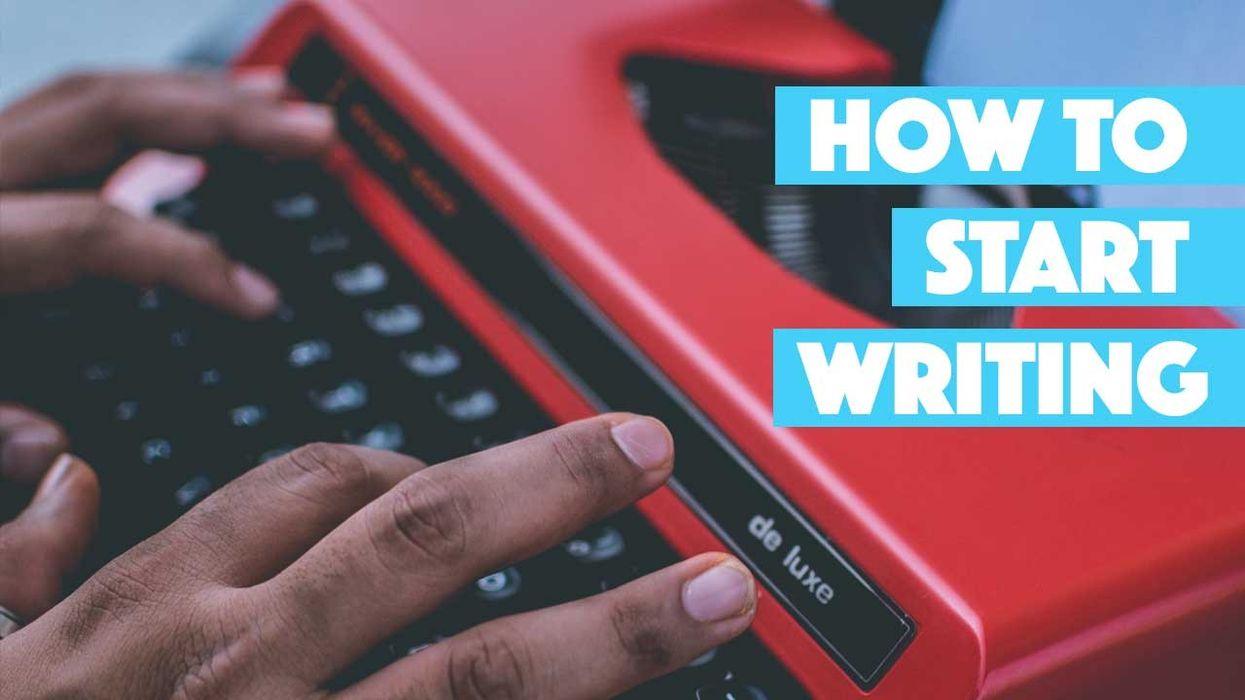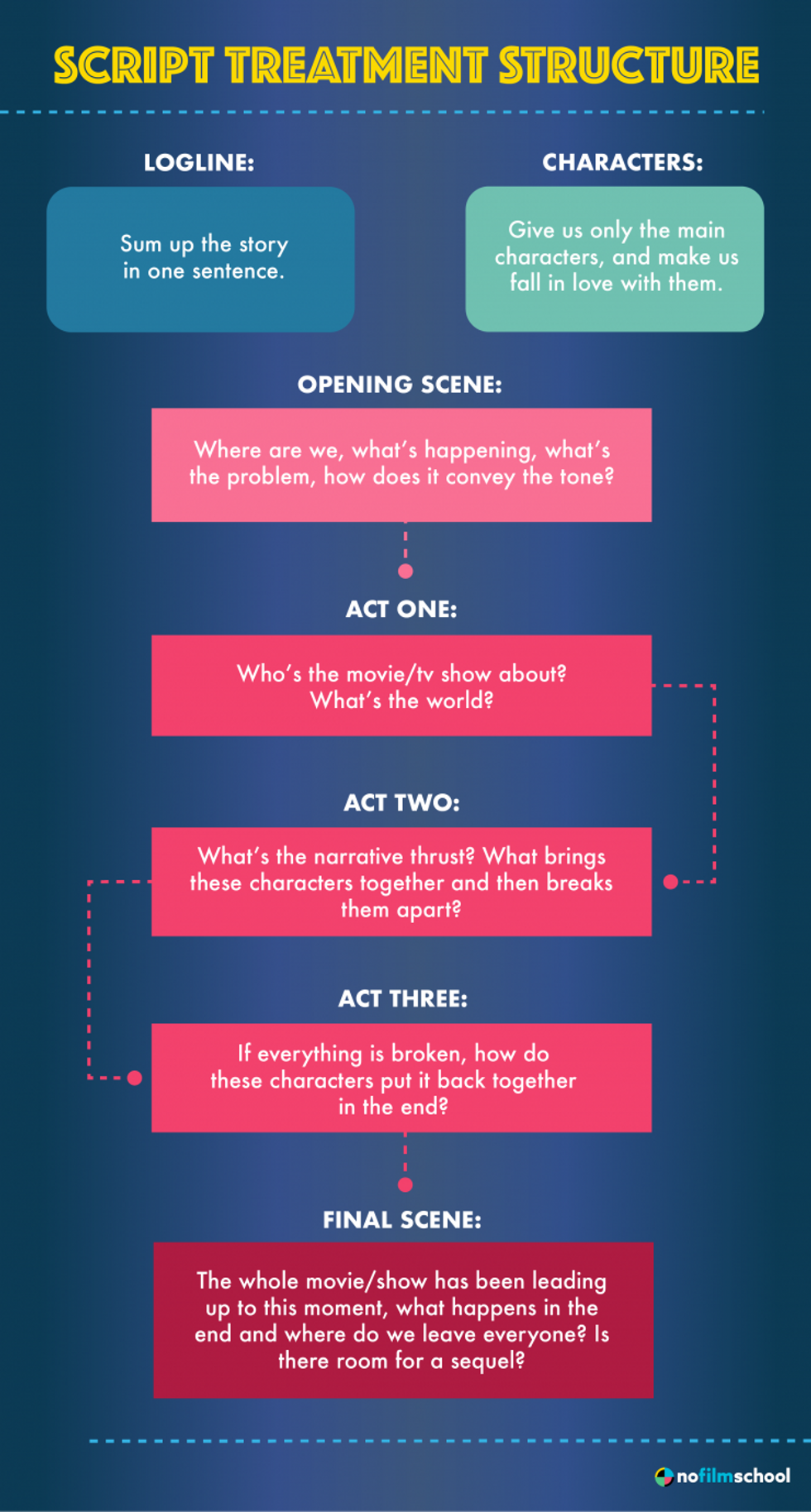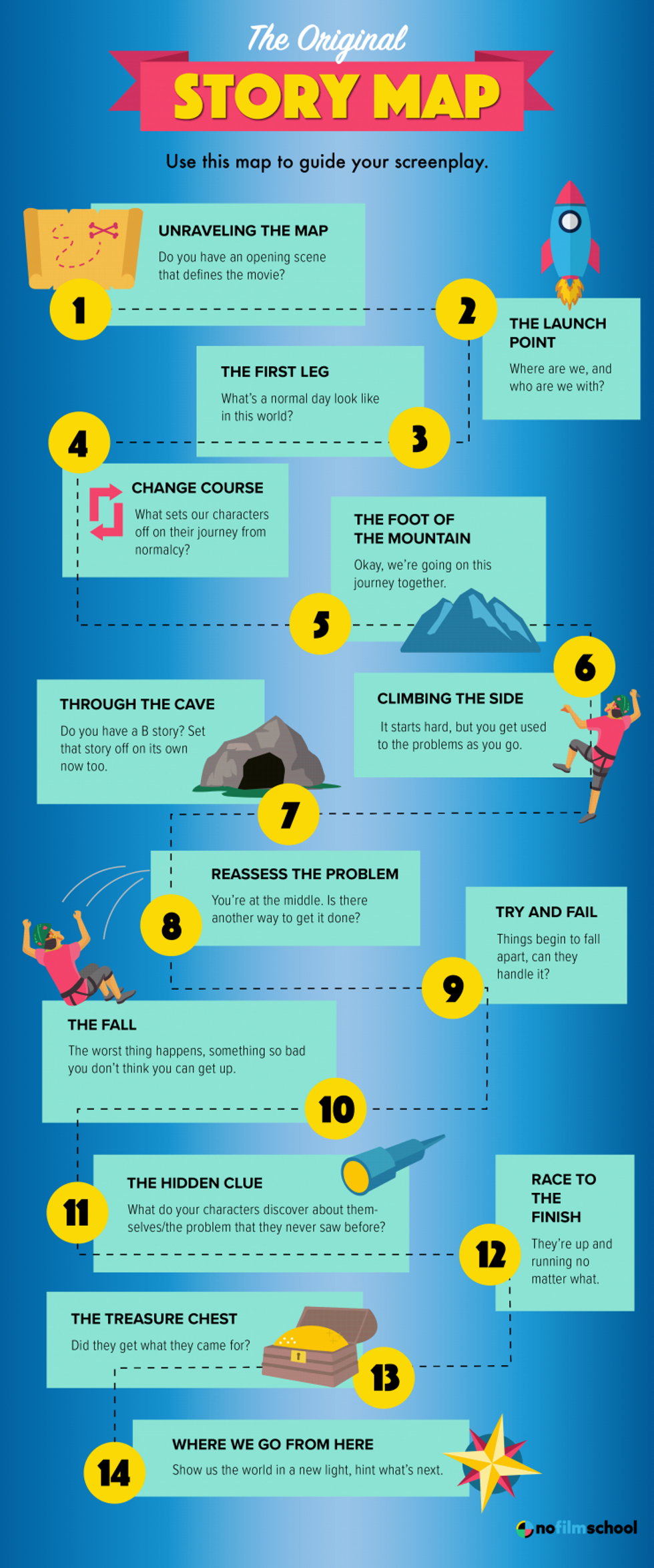How to Write a Movie Script
If you want to know how to write a movie script, you've come to the "write" place (sorry not sorry).

We all know the most horrific thing on the face of the earth is either Pennywise... or staring at the blank page. Pennywise isn't real (I swear), but that blank page and blinking cursor will haunt you for your entire life, especially if you're a writer.
If there is a fool-proof way to learn how to start writing it hasn't been discovered yet. Instead today I'll go over all the steps I take to get my story onto the page and into my manager's hands so he can go sell it.
Let's go learn how to write a movie script!
How to Start Writing: Get Your Words on the Page
I'm excited to go over the strategies I use partly because each key point here is elaborated on in a separate post on that exact method, tool, and resource.
Why is that cool? Because with this SINGLE post you should have a whole kit to help you start writing your screenplay from start to finish.
It should also save you about 100k in film school debt. Which currently crushes me and defines every decision I make in life.
But enough about me, let's get into the article!
How to get ideas for writing
Ideas can come from all over. You can steal stories from the news, talk about current events, write a biopic about your favorite famous person, or use something from the public domain.
The point is, you need to keep an active list of ideas. You never know when inspiration will strike.
Anything can be a movie idea, but the best movie ideas come with great endings, not just great opening scenes.
More on that later.
Let's keep learning how to write a movie script.
The ways to begin a story
You can begin a movie a number of different ways. People like flashbacks or other plot devices. I like to begin in media res, or in the middle of a scene. Let the audience come in on the action and play catch up.
This gets people engaged right way and invests them in the story.
"I have ideas but I can't write..."
Ok so now you have ideas.... but you need to get WORDS on the page... how can you do this?
There are plenty of cures for writer's block out there, but I am guessing you're just dealing with imposter syndrome or the fake feeling that you don't deserve success or belong.
That's all horseshit.
Dreams are dreams until you make them realities. If you want to be a writer, you have to write. It's as simple as that.
So sit down and write. That's how to write a movie script.
1. The best way to start a story? A logline.
Loglines are the way I generate ideas for my screenplays. I usually come up with a list of about ten loglines and then talk with my manager about which he thinks are marketable and could work.
Don't have a manager? This alternative is even better:
Share them with your friends, preferably not ones in the industry, and see which ones grab their attention and which ones don't.
What if you don't have any friends?
EVEN BETTER!
Go up to some strangers at a coffee place and say "Hey wanna hear 10 loglines?" They probably will want to and you'll also get a great read on the quality of your ideas.
After you and your manager/friend/stranger pick the top three loglines, it's time to go off and turn those into beat sheets.
But wait...
Before you move on to beat sheets, please make sure to read up on how to write a noisy logline. The logline really is the core strand of DNA for a story. If it works, the story can work. Problems with the logline will mean problems with the story. Don't settle when it comes to loglines!
2. Another good way to start a story?A Beat Sheet.
Ok, so we're on to the beat sheet now.
A beat sheet is a list a writer makes of the emotional moments, plot points, or 'beats' that outlines and defines their story.
Beat sheets give the relative moments that happen in each story. They can also help whittle down which ideas were good loglines but might not have enough to them to sustain an audience for an entire movie, or TV pilot, or whatever you are writing.
I know I have a solid idea if I make it the all the way through a beat sheet and I still love it the idea by the end.
But more than just 'loving it' you need to feel like each beat is taught, and earned, and part of a story that has a reason to continue.
What comes after a beat sheet?
3. A treatment can help learn how to write a movie script.
Once I have my beats, I assemble it in long-form within a treatment. The treatment is a written-out version of the story that captures the tone, characters, and moments that I think pop.
I write my treatment like a short story, It has lots of editorial notes, pictures, and even references other movies or tv shows. I want the story to be clear and concise. It's starting to feel more like a fully fleshed out idea with elements that can attract people beyond words.
Next I share my treatment with my manager.
He helps me poke plot holes, establish more of the acts, and gives general notes about the emotional payoffs.
I then use these notes to create my outline.
Again, if you don't have a manager you still should find a good sounding board. That stranger at the coffee place might st
4. Outline to learn how to write a movie script.
Lastly, I create an outline.
I make these outlines in my screenwriting software or in Word/Pages. This outline is super detailed. I include scene headings, every beat I now happens, and even some key dialogue I think belongs in the movie.
The reason I make this outline so detailed is that I don't want there to be any confusion when I sit at my laptop to write. I need a road map... a STORY map...
I want to be able to fly through the acts and get a first draft done as soon as possible.
So make your outline detailed and efficient.
5. Open your screenwriting software to get started writing.
Here it is, the moment of truth.
I like to have my title figured out before I write, that way I can label the drafts and ease into page one. But you gotta open it and start writing.
It can be scary, intimidating, and frustrating, but if you've done the prep it will be easier. I fail every day. Sometimes I write one line, sometimes I write 30 pages. The key is chasing the actual writing.
Sit down, hit the keys, and see your ideas come to life.
Terrified to write a scene? Try out some of our 75 prompts to get your story going.
What's next? Start writing your feature film!
Screenwriting is hard. But to become a filmmaker, you need to learn scriptwriting to master storytelling. We'll give you free lessons.















![Ethos, Pathos, Logos: 20 Effective Ways to Advertise [Infographic]](https://nofilmschool.com/media-library/ethos-pathos-logos-20-effective-ways-to-advertise-infographic.jpg?id=34064614&width=600&height=600&quality=90&coordinates=560%2C0%2C0%2C0)

